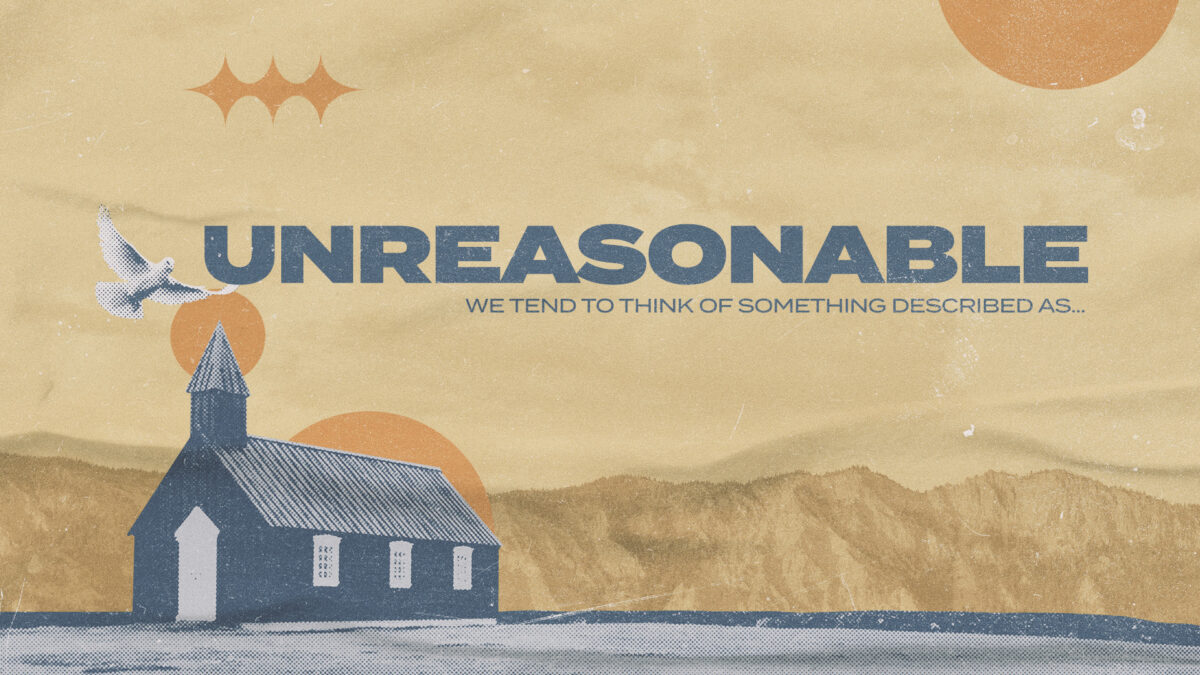We typically think of something described as ‘unreasonable’ as something that is not ok or it lacks reason, so it can’t be good! My neighbor who allows their 93 huskies to bark (it’s actually 3, but they sound like 93) incessantly and runs his generator into the wee hours of the morning even after the power has been restored is ENTIRELY unreasonable. They obviously have not deployed ‘reason’ as a part of their decision-making process, so ‘unreasonable’ is probably an accurate description (I’m mostly kidding – our neighbors have been fine people, but their decision-making is occasionally baffling). However, ‘unreasonable’ doesn’t always carry a negative connotation. I like this definition from vocabulary.com: ‘to a degree that exceeds the bounds of reason or moderation.’ I like it because I think the world could use a little more ‘unreasonable’ right now.
The headlines are chocked full of unreasonably bad news and bad people and bad events that lack reason and all connection to ‘good.’ But what if followers of Jesus engaged the world around us ‘to a degree that exceeds the bounds of reason or moderation?’ Perhaps we’ve been too reasonable in our pursuit of Christ and loving our neighbors. What would change in our schools? Offices? Neighborhoods? Church? Maybe we would see more of this:
- Imagination. We may not know exactly how to be unreasonably faithful. It’s going to take some time and some trial and error, and it’s entirely possible that we’ll make a mistake or two. However, as we look and listen for opportunities to be faithful beyond the bounds of reason, we will be forced to exercise the mental, emotional and spiritual muscles of imagination. Can we imagine a world in which we love unreasonably?
- Curiosity. If we exceeded the bounds of moderation in the way we love each other, I wonder if the world would be more curious about what we’re up to. Prevailing opinion seems to be that the world has heard enough of Christianity, knows what the church is up to and they have already decided to pass. I wonder if unreasonable acts of faith would invite people to consider that they may not know what we’re doing or why. Could that curiosity be contagious? Would that curiosity create new opportunities to tell God’s story?
- Community. Ultimately, unreasonable faithfulness can’t help but draw us together because it will require us to know each other better. I can’t ‘exceed the bounds of reason’ in loving my brother/sister in Christ or my neighbor if I don’t know them. I wonder if our commitment to love unreasonably would expand our desire to know each other and deepen the ties that bind us together in spite of our differences.


